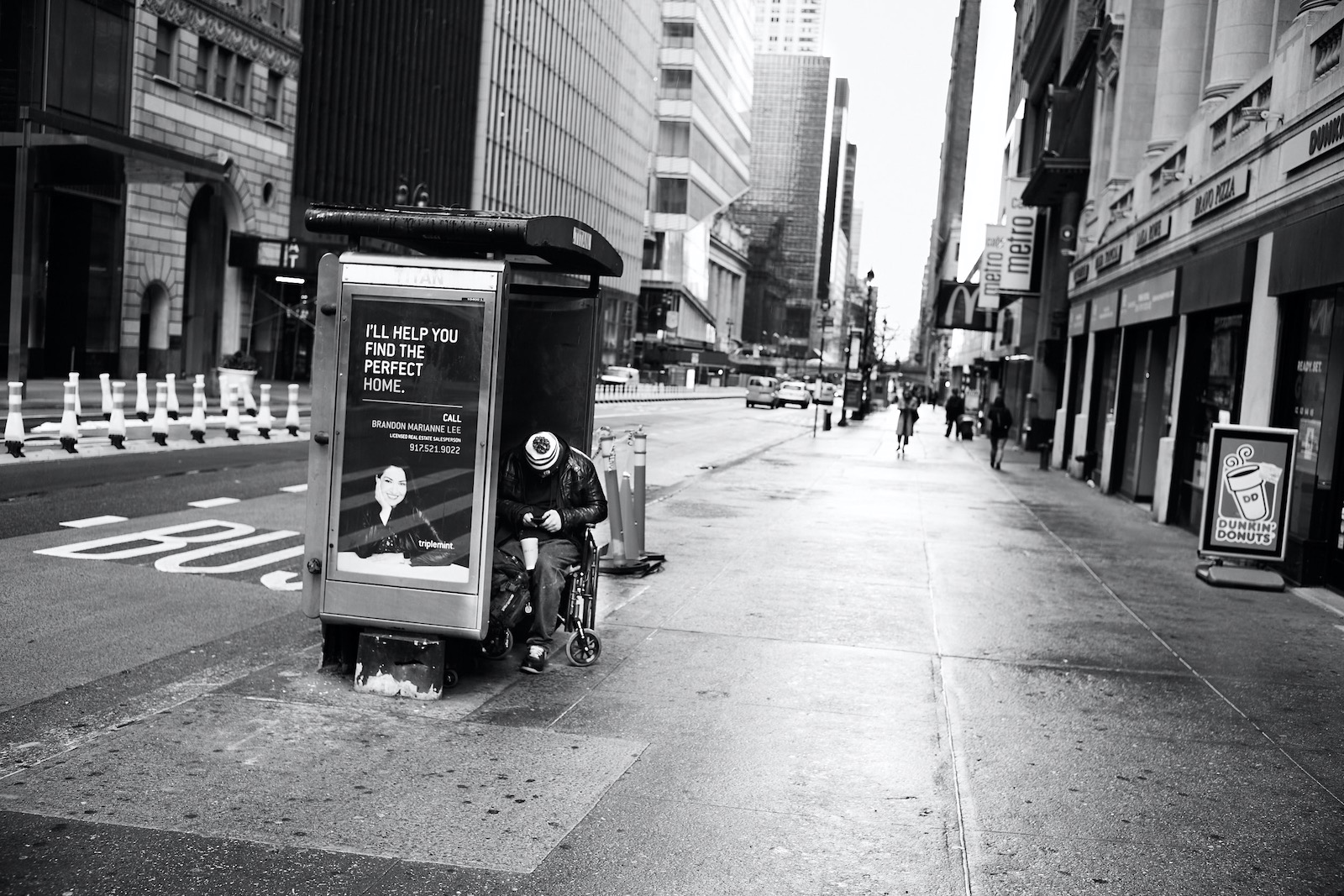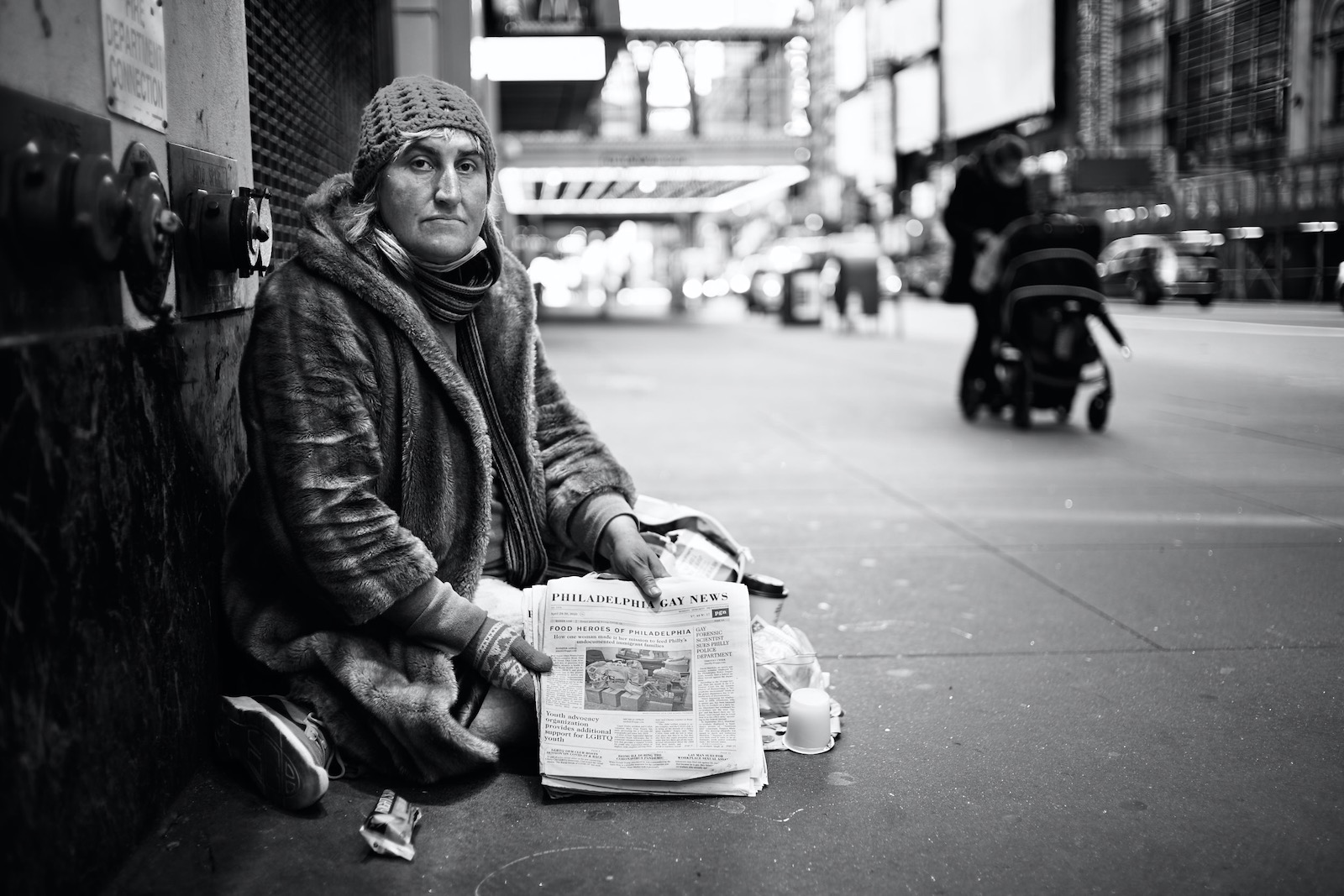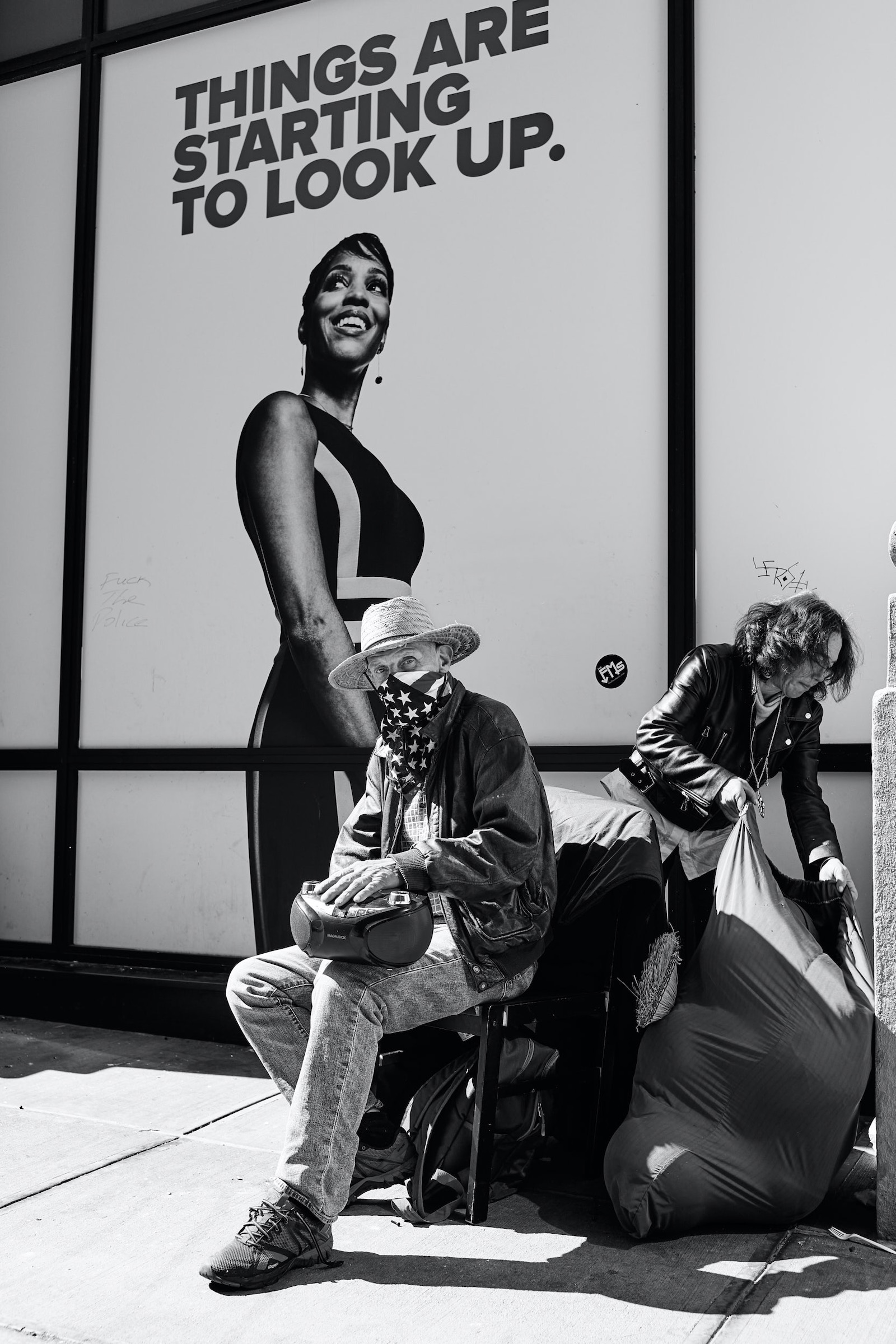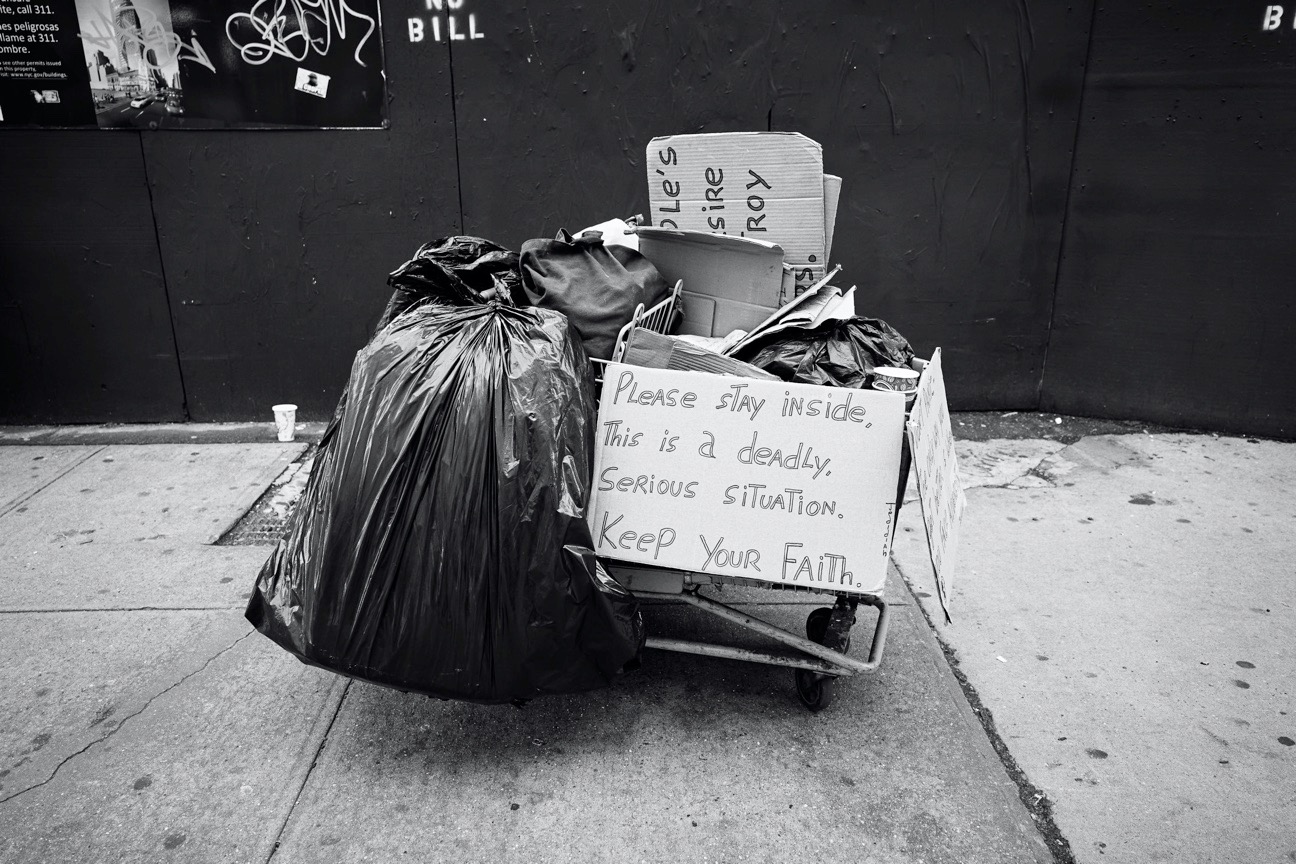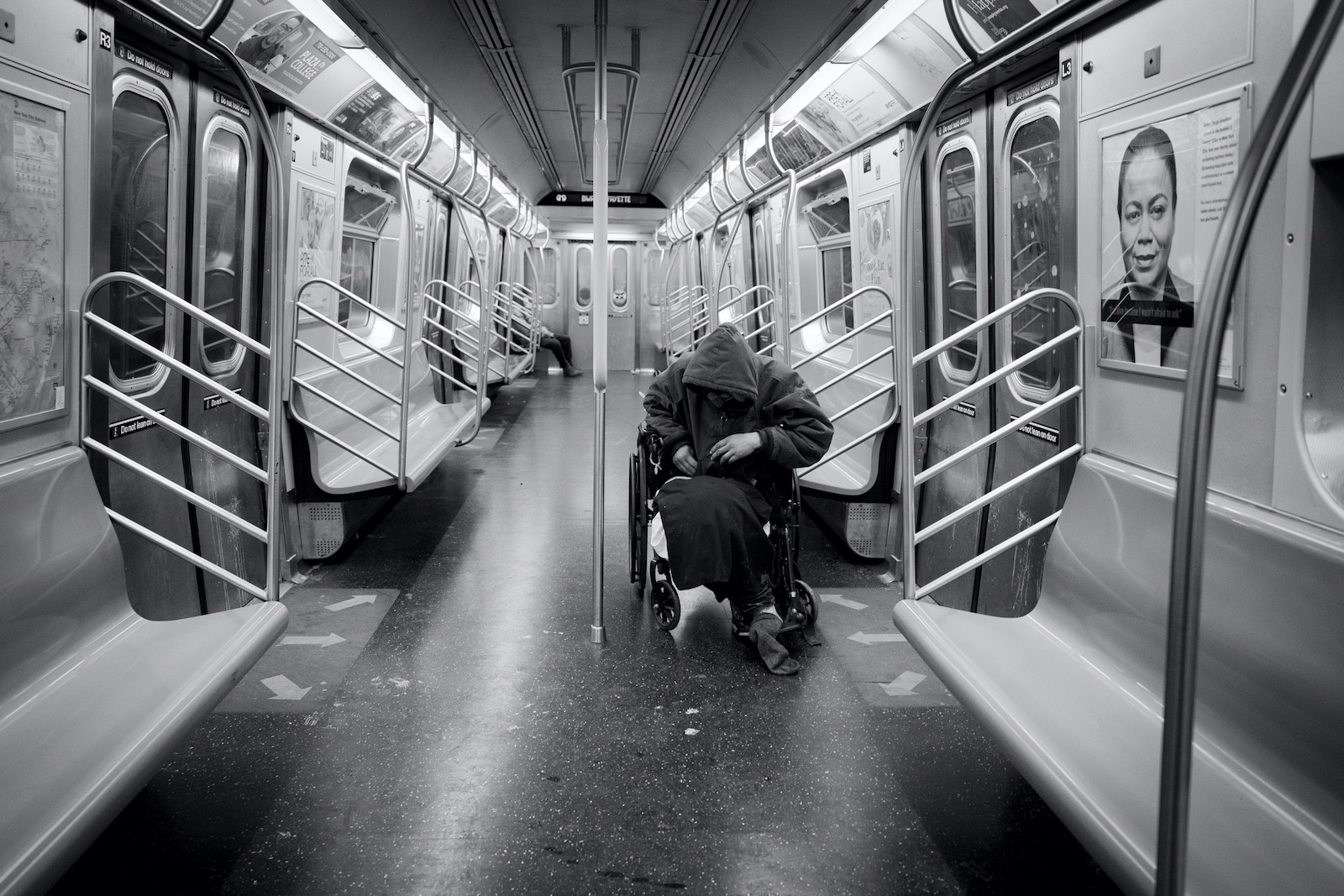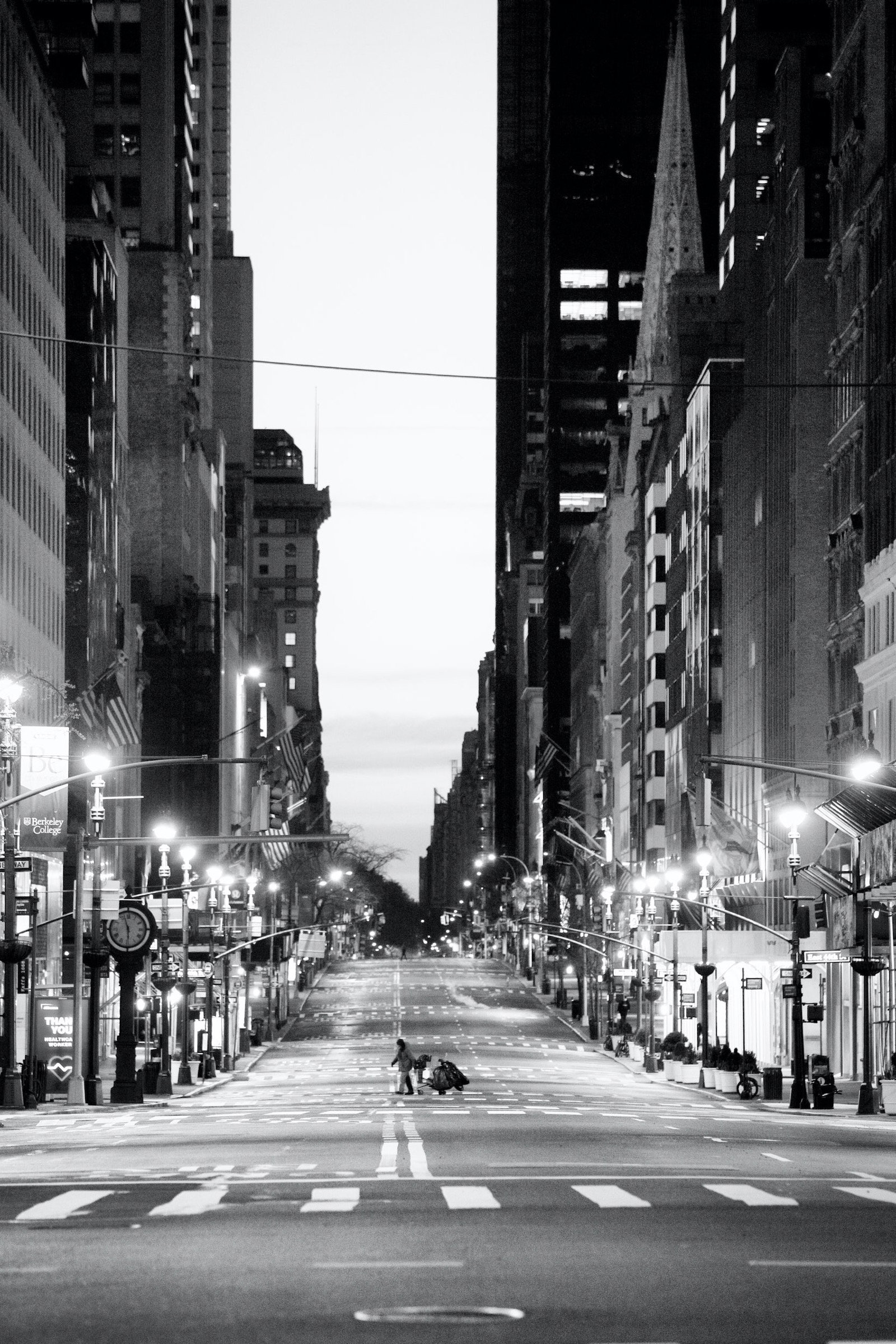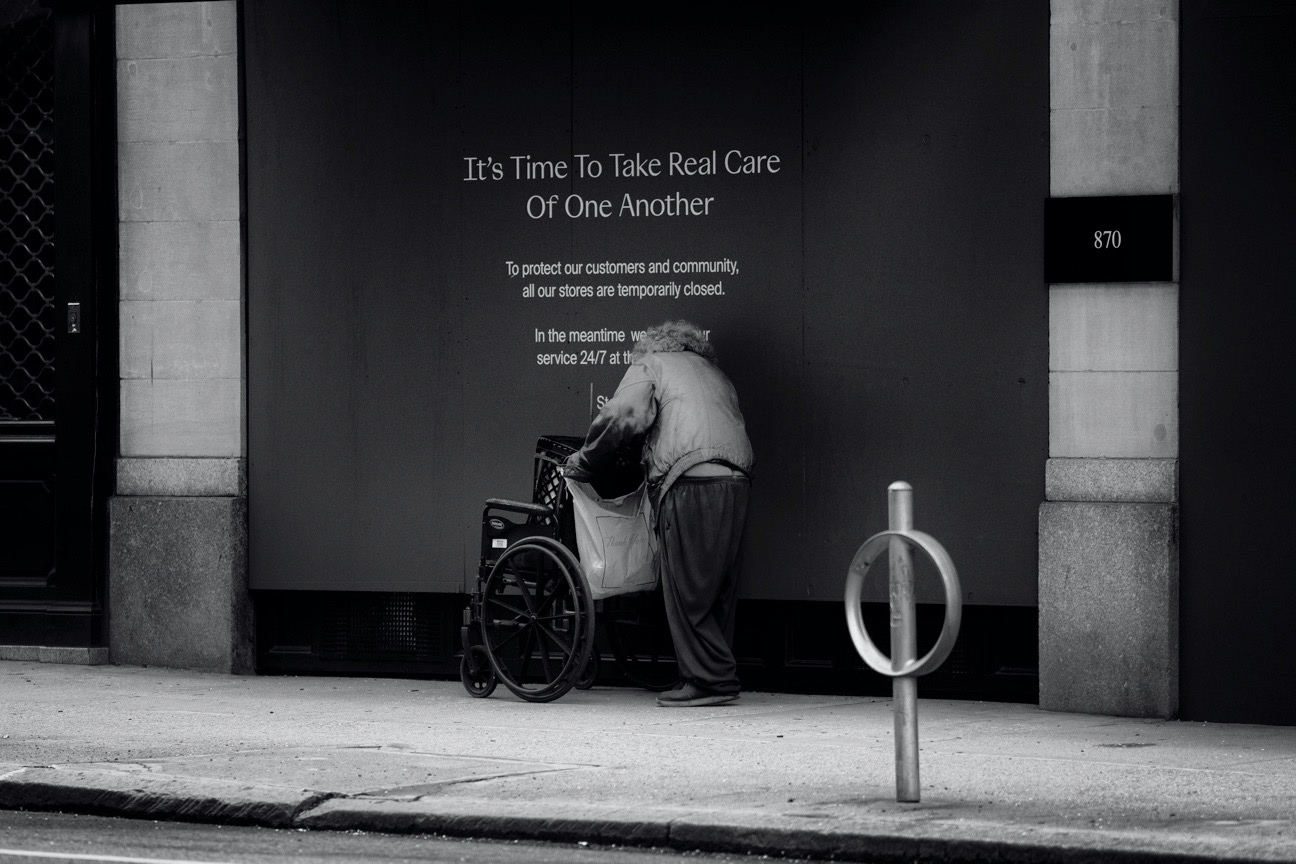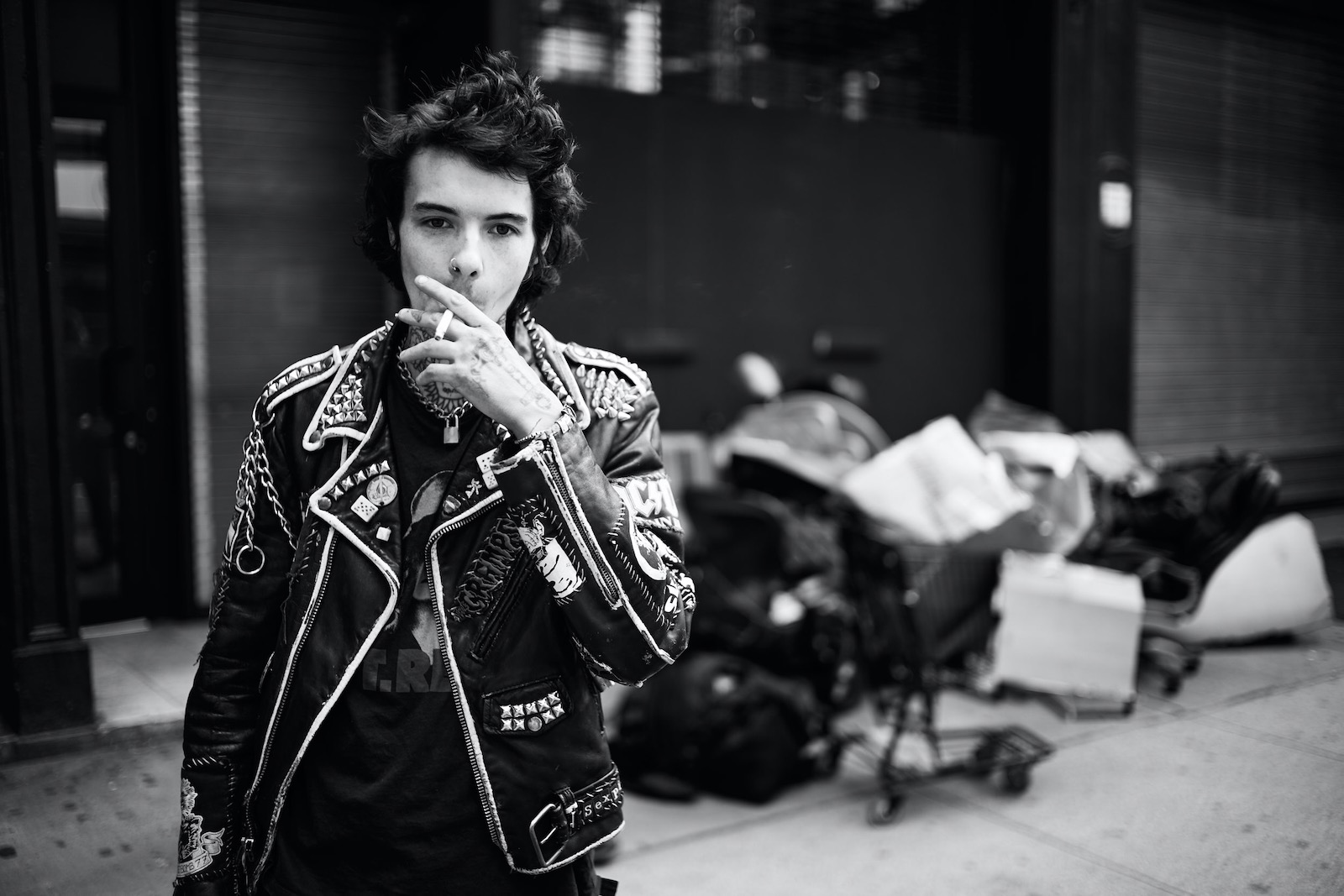New Yorkers’ lives have been on pause; they’ve been told to stay home. But for CJ, Dennis, and countless others who, for their own reasons, have chosen not to go into city-run shelters but to stay on the streets, this is their home.
The streets of Midtown Manhattan, especially around 42nd Street and the Port Authority Bus Terminal, have been unusually empty of the usual hordes of commuters and tourists. But their absence only makes the number of homeless people more starkly apparent. Nothing like this has been seen in the city, perhaps, since its years of being broke and broken-down in the Seventies and early Eighties.
Over my years of photographing New Yorkers, one thing that always caught my eye is the way many homeless people would get creative with placards bearing captions like “Family Killed by Aliens. Need Money for Ray Gun” or “Trump Smoked My Weed.” At some point, a street person I was talking to explained that they needed to be creative to attract donations: a witty sign was a meal ticket, of sorts.
Now, with no crowds in sight, even the signs were gone. But the people I knew were all still there, and more besides. Over the past two months of lockdown, I’ve focused on the people who are still on the street or in the subway. There are two categories of people still using mass transit: essential workers and the homeless.
On Broadway, I came across a man wearing a jacket that read “Fuck Everything” across the back. His name was Tommy, he said; he had trained as a classical pianist and used to work as a fashion model. Agreeing to let me take his picture, he asked, “Where are you from?”
“Dorset, in the United Kingdom,” I replied.
“I’m from Bournemouth,” he said. That’s about five miles from where I was born and brought up.
While I was there, a crew from the Sanitation Department worked down the street, lifting trash bags and clearing the sidewalk where Tommy’s ramshackle shelter sprawled. He watched impassively as the workers tossed some of his belongings in the back of their garbage truck. Then he and a friend picked through what they wanted to keep, and moved down the street.
“Will just move it all back when they are gone,” he said.


